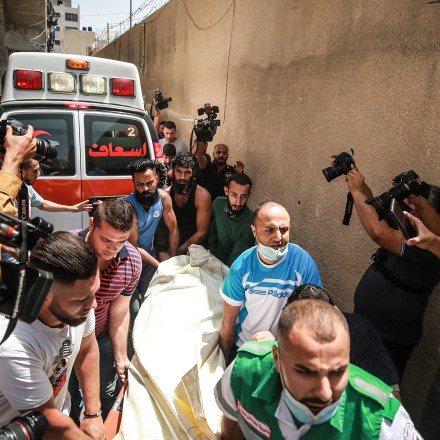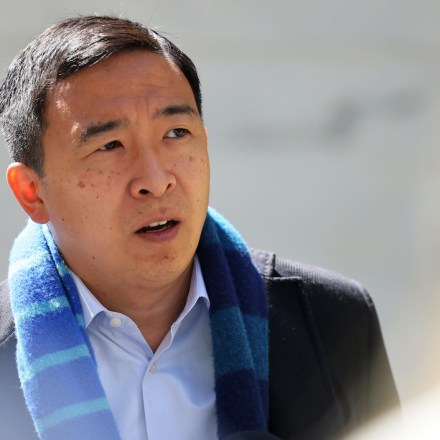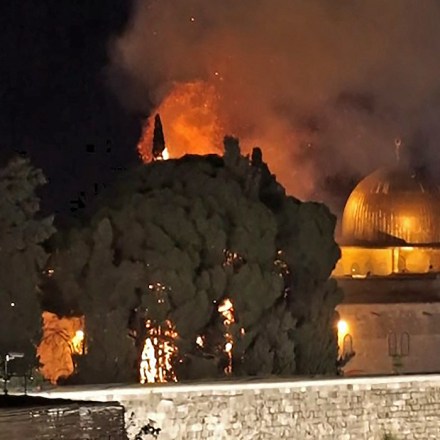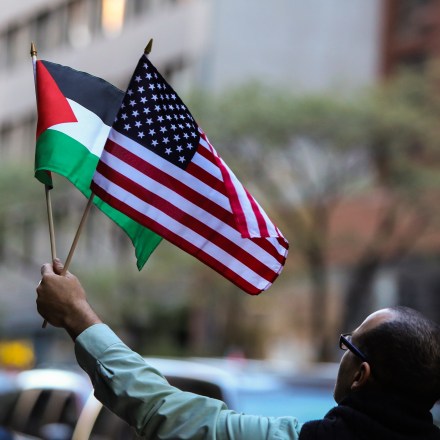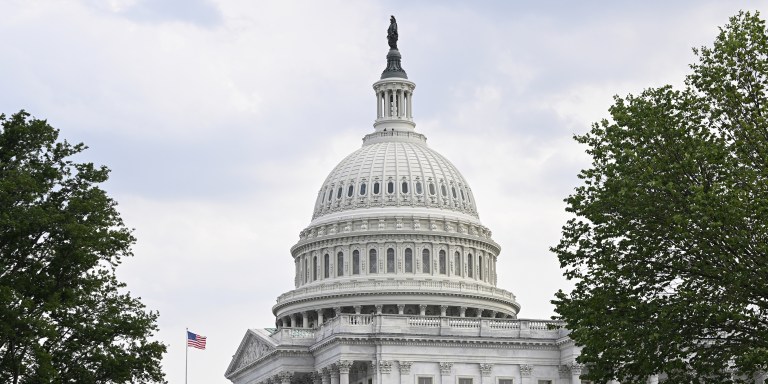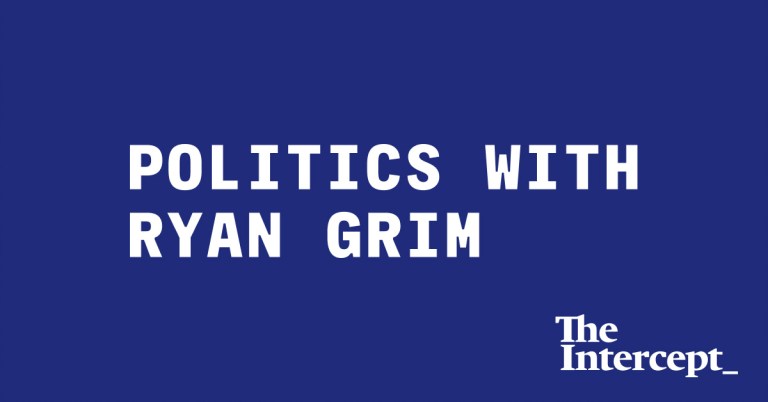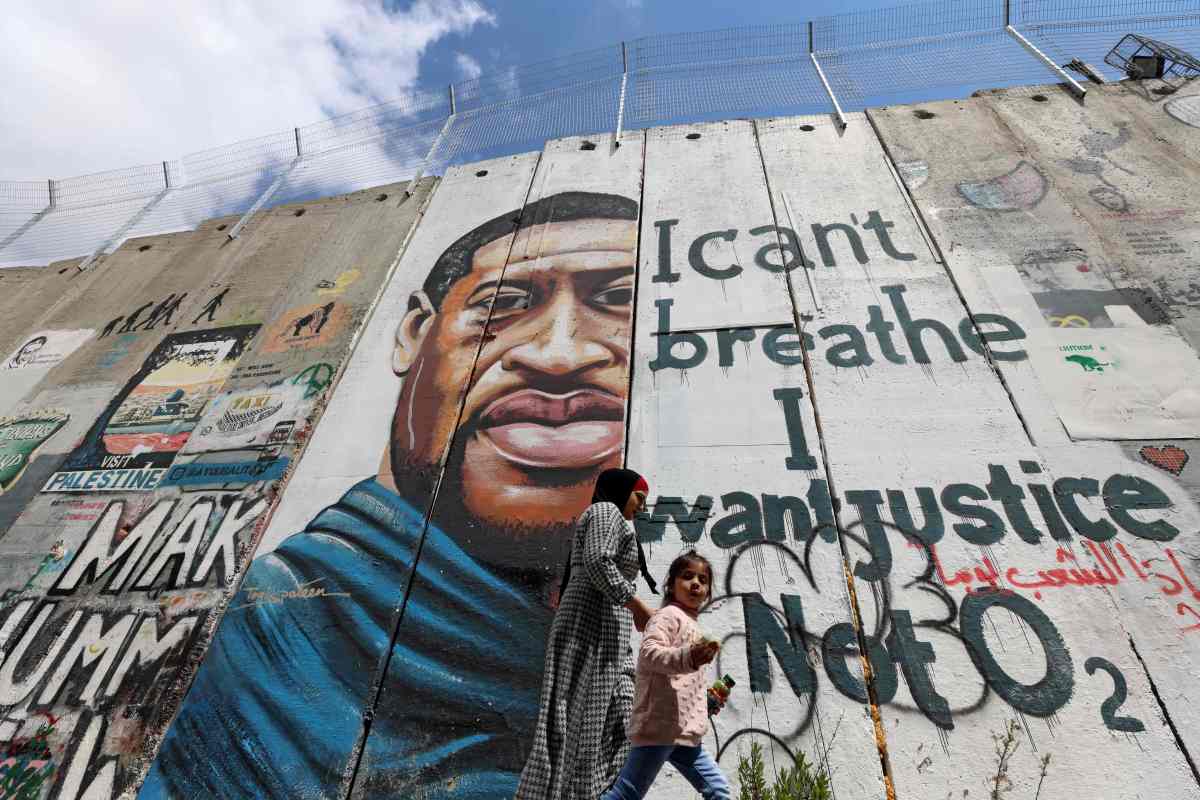
A woman and child walk past a mural of George Floyd painted on the side of Israel’s separation barrier on the occupied West Bank side of Bethlehem on March 31, 2021.
I was 19 the first time someone told me I didn’t exist. I was in college, standing near a display about civilian deaths in the occupied Gaza Strip during an Israeli assault. I can’t remember the face of the student who accosted me, although I remember the sneer in their voice, the way it sliced into my unguarded chest. I was not prepared to be erased.
“Palestinians don’t exist,” they said. With time this moment would blur, but not fade, mingling with innumerable interactions in which strangers would likewise inform me of my nonexistence. In that moment, though, it was a wholly new experience. I felt the brief flicker of a laugh before the sick sense of outrage landed in my gut. Before I could find the words to respond, the accuser was gone.
How strange, to tell a living, breathing human being, to their face, that they are “unreal.” And what would be the proper defense? How does one reply to a delusion?
Of course, it’s not true, that I don’t exist: I have a body, made of flesh and blood. Yet in many ways, that stranger was right.
Because something happens at the mention of that word — Palestinian. In the moment it is uttered, I become something more, and so much less, than human.
Palestinians, as a people, are visible but rarely seen. We do not “exist” as others do; we have neither a formal country nor any economic or military power to speak of. We have a history and culture, but these are eroded and appropriated more with every passing year. Mostly, we are collectively obscured by what people think they know, what they think we are: threats, troublemakers, terrorists.
This is how we can be in so many headlines and yet die such endless deaths. We die, in part, because that is what the world expects of us. Our name is invoked only in connection to brutality and strife, which are presented as inevitable, our natural state. Reports read like weather reports: The “climate” “heats up” then “boils over” into “another wave of violence.” Our casualties are like the seasons — a crop of dead every few years, usually in Gaza.
Public images of us reveal a world of dust, tanks, and soldiers. These stark, menacing streets mingle in the Western imagination with sand-colored reels of other deaths — Afghans, Iraqis, Syrians — further obscuring all of us. Clichés wrap individual tragedies in generic repetition, an endless archive of the unremembered.
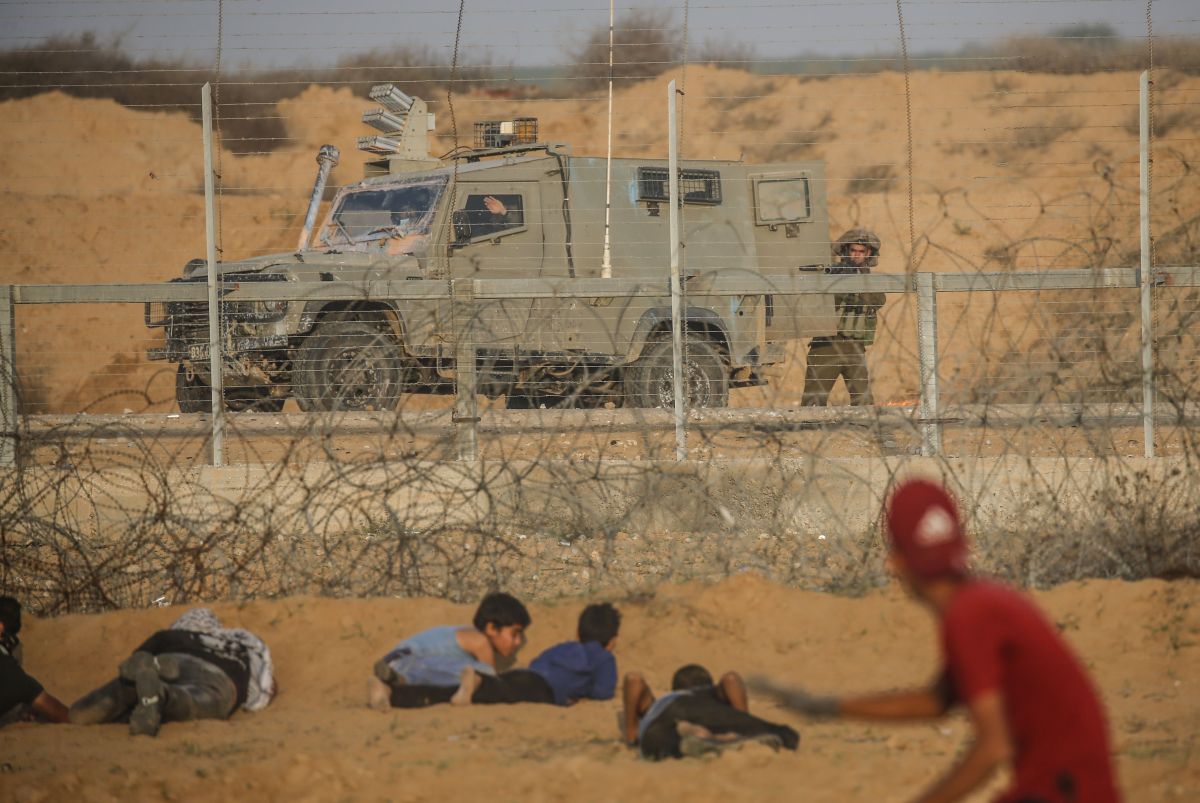
All this because we are among the world’s disposable people. What kills us is not only Israeli state violence but the international community’s collective failure to imagine us as human beings. It is the same failure that has allowed so many Black bodies to be murdered in the broad daylight of viral videos, with so little systemic change. As Elizabeth Alexander has written, “Black bodies in pain for public consumption have been an American national spectacle for centuries.” With such a violent collective memory, it’s no wonder white Americans have been so egregiously slow and equivocal in responding to anti-Black violence. For who is more visible in the U.S. than a Black person? Yet who is the most seldom seen?
This is the lethal contradiction that generations of Black intellectuals and activists have worked to dismantle. The “problem of the color line,” as W.E.B. DuBois called it, will only be solved when the U.S., as a whole, grasps the full humanity of Black people, who have been systematically dehumanized. There can be no going forward, in short, until the U.S. internalizes the most basic truth that Black Lives Matter.
In this way, the U.S. and Israel confront a similar moral failing: Years of intentional disenfranchisement, abuse of and theft from a people in the name of another group’s supremacy — in one case, under the banner of whiteness, and in the other, Zionism. Both have gambled on their ability to suppress these peoples’ efforts to resist their oppression, through the means of mass incarceration, state violence, and legal discrimination. And both have seen that even the most brutal crackdowns cannot squelch the human spirit forever.
When I was a senior in college, after I’d lost track of the times I’d been told that I didn’t exist, I had an especially menacing run-in with a drunk stranger, who happened to know me as a Palestinian. He grabbed my arm, forcing me to join a circle of his friends, and proceeded to taunt me for my belief “that Arabs and Jews are equal” and that “Palestinians should have rights.” His harassment deteriorated into sexual threats, all of which his friends seemed to find hilarious. Yet, after I finally slipped out of his grip, what haunted me most was how silent I had been in the face of his tirade. Why did I always freeze?
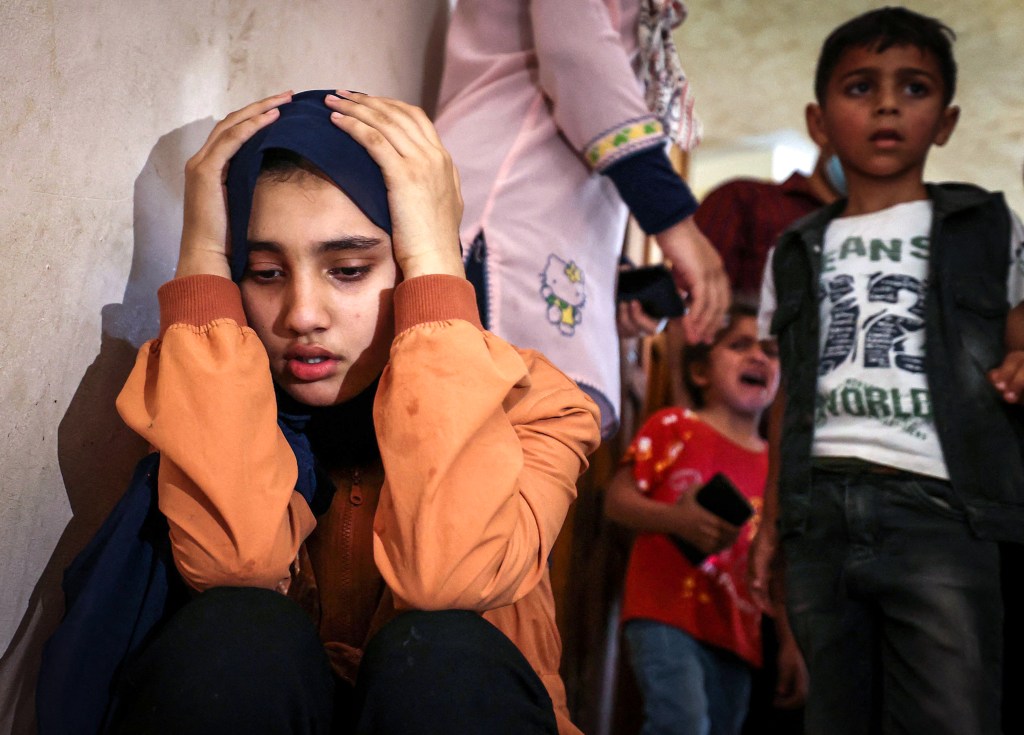
A Palestinian girl and other relatives mourn the killing of 11-year-old Hussein Hamad during his funeral in Beit Hanoun in the northern Gaza Strip on May 11, 2021.
There is a particular, stultifying effect that comes with having one’s humanity denied outright. In that instant, the specificities of a life — the loves and fears and hungers, the family histories and secret hopes — are erased. It can leave a person speechless, shaken, losing grip on one’s sense of power. My drunken accosters did not ask me to debate policy; they questioned the very legitimacy of my existence. That moment cut to the hidden heart of the Israeli-Palestinian “conflict”: Do Palestinian lives matter?
The statement “Black Lives Matter” was birthed in the wake of the Ferguson uprisings and the brutal police response — events which Angela Davis remarked reminded her of the streets of Gaza. The idea — that Black lives have worth — is powerful because it seems obvious but forces us to confront all the material realities that contradict it. If Black Lives Matter, why are Black men 6 times more likely to be incarcerated than white men and 3 times more likely to be killed by police? If Black lives matter, why the vast racial disparities in resources, wealth, and health? In this way, the simple statement dares to unmask the forces of anti-Blackness and white supremacy in the very foundations of this nation.
Similarly, the material realities of Palestinians make clear that the Israeli state places little value on their lives. It would rather we weren’t there at all. The nation itself was founded on the violent displacement of hundreds of thousands of Palestinians, including my family, in 1948 and expanded through subsequent wars and the ongoing dispossession and settlement of areas such as the West Bank and Jerusalem. Those who remain have their existence denied daily, through intentionally dehumanizing encounters with the Israeli state, from arbitrary checkpoints to extrajudicial violence to economic exclusion to a prison-industrial complex that captures thousands of Palestinians, including minors, each year.
The recent “escalations” in Jerusalem only confirm the unreality of my people. News outlets report the events with a tone of clinical accounting, unaffected by the vast incongruencies of injured and dead (as of Thursday morning — the first day of Eid — over 1,000 Palestinians injured and at least 83 dead, including at least 17 children, with seven Israeli deaths). Commentators like sportscasters placing bets on Hamas’s next move, Thomas Friedman cracking wise about Palestinian youth and TikTok. Rock-throwing youth and lethal military forces portrayed like equal adversaries, or worse, a reverse David and Goliath, the civilized against a rabid, brown-skinned crowd.
They will never tell you how each one of us breaks and bleeds uniquely, how specific each individual’s suffering and resilience are. You’ll never hear, as I did on the phone with Jerusalem this week, the details that make this such a human drama. One Sheikh Jarrah family who can’t bear to lose their garden, filling my WhatsApp chat with snapshots of trees rooted decades ago. Another young man who couldn’t let go of what he’d seen in Al Aqsa Mosque: not the bloodshed or his now-blinded companions, but all those soldiers’ shoes, stampeding sacred ground. Their shoes, their shoes, he moaned. Their dirty shoes.
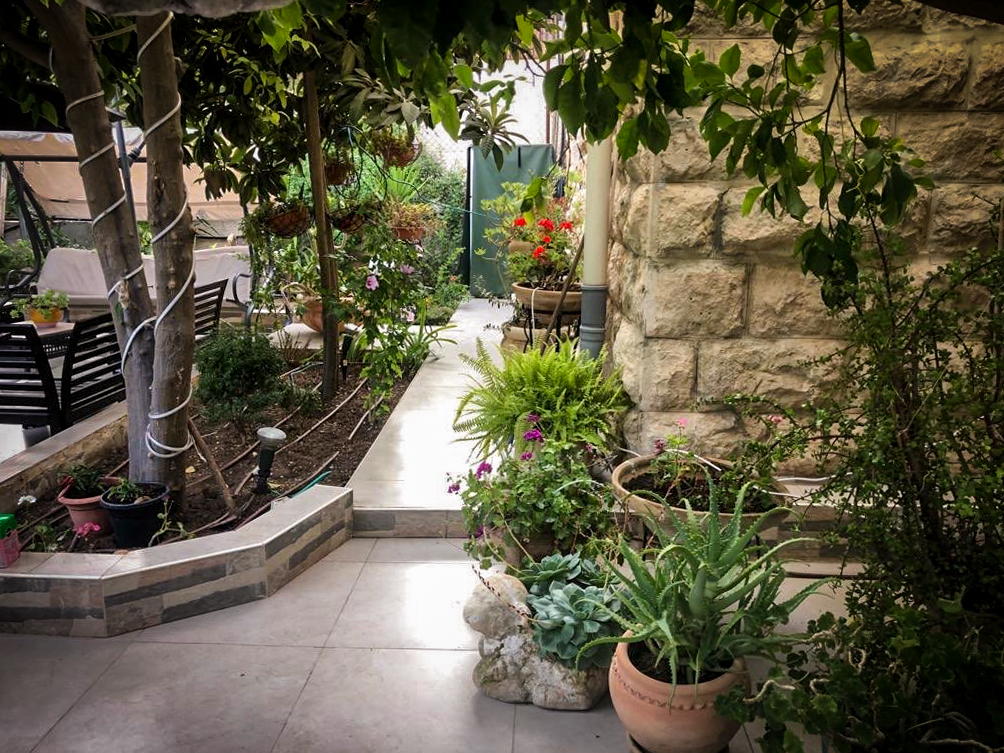

The beloved garden of a Palestinian family in Sheikh Jarrah who will be forced to leave it.
Black Americans have shown us, again and again, that they will not allow themselves to be made unreal — and this last year, many more people seemed to listen. For Black Americans who routinely face state violence, the murder of George Floyd was tragically unsurprising. Yet this particular death seemed to penetrate the larger American imagination, managing, somehow, to puncture the gloss of indifference with its sheer visceral force, its specificity. Floyd was seen as an individual, a human being, and his name became a movement. “Black Lives Matter” had a resurgence, thanks in part to the sudden recognition by white Americans of a particular Black life, and death.
Palestinians were quick to respond to the George Floyd movement, protesting in solidarity, drawing parallels between their own experiences of mass incarceration, militarized law enforcement, legal discrimination, knees on civilian necks. Floyd’s face decorated stretches of the Israeli barrier wall, alongside murals of Palestinians killed by Israeli police and soldiers, including Iyad Hallaq, an unarmed man with autism, shot on his way home from school. Floyd’s death also prompted discussions in the Palestinian and wider Arab communities about their own anti-Blackness. This internationalism is not new: For years, Palestinian activists have looked to the American civil rights movement, the South African struggle against apartheid, and others for inspiration. They have also offered their solidarity and support to movements abroad, including the Standing Rock protests and other efforts for Indigenous rights.
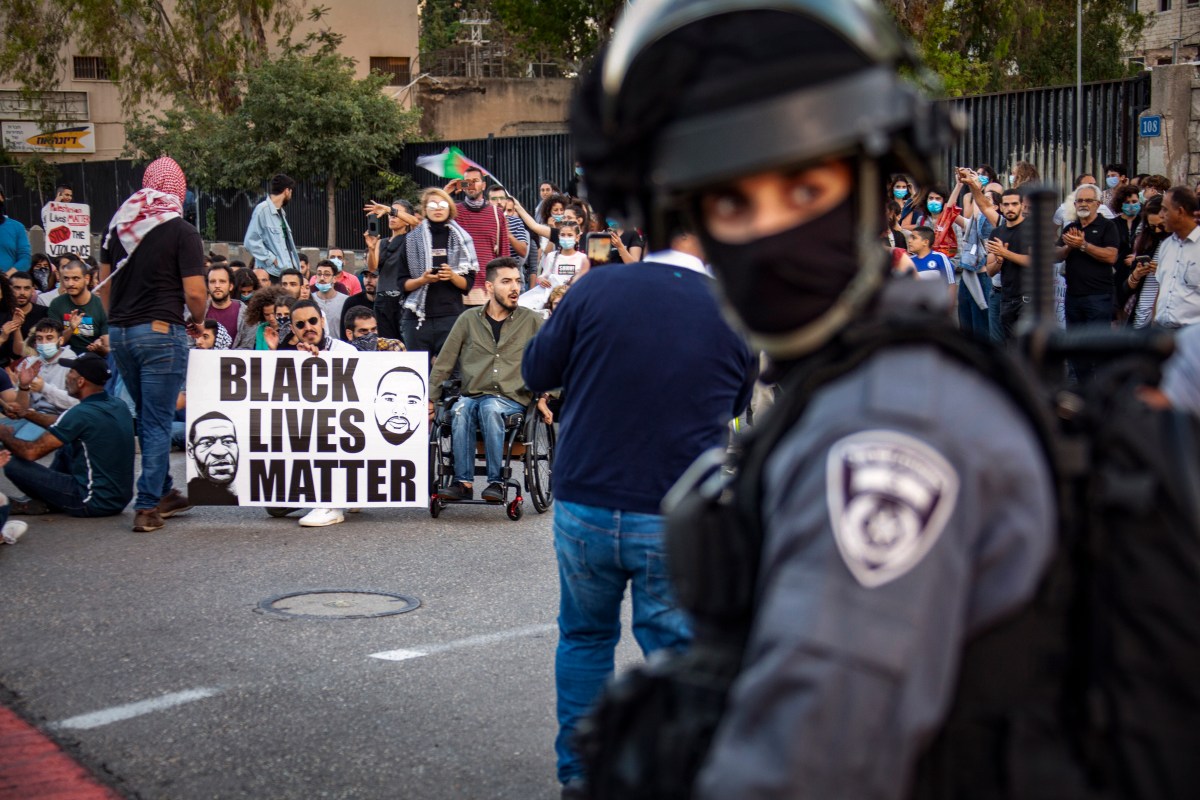
Palestinians drew on these experiences in the weeks leading up to the recent “escalations.” In the presence of mobs shouting “Death to Arabs,” police violence at the holy grounds of Al Aqsa Mosque, and the flagrant encroachment of settlers in Sheikh Jarrah, Palestinian protests remained “largely peaceful,” reported Amnesty International. This long suffering was obscured by the increasingly brutal “scuffles” around Al Aqsa Mosque, in which Israeli armed forces deployed concussion grenades and rubber-tipped bullets against worshippers, injuring over 1,000, including 170 at a single Friday prayer during the holy month of Ramadan.
Now, with the involvement of Hamas providing justification for Israel to unleash its world-class arsenal, the particular moral stakes of the events have dissolved into the familiar, generic narrative: Israel defends itself, Palestinians die. The headlines, for most readers, will become interchangeable; the death tolls will be packaged in the sanitizing language of military calculations and diplomatic jargon.
Meanwhile, defenders of Palestinians’ right to resist will be inundated with “what abouts” and demands to denounce violence — questions to which the Israeli military, infinitely more powerful, will never be subjected. On the contrary, Israeli Prime Minister Benjamin Netanyahu boasted this week that the killing in Gaza was “just the beginning. We’ll hit them like they’ve never dreamed possible.”
Throughout, detractors will use any casualties or property damage on the Israeli side to discredit the entire movement, just as the labels of “outside agitators” and “rioters” have been used to discredit Black activists from the 1960s to today. The fundamental illegality of the occupation will go unmentioned. Negotiators and journalists will demand that Palestinians pledge themselves to nonviolence, never acknowledging the years of peaceful resistance they’ve sustained against all odds.
While commentators recycle “both sides” rhetoric, the death toll will, as always, surge exponentially on one side. The decimation of Gaza will be excused as necessary to stop “terrorism,” the obliteration of dozens of civilians, including children, notwithstanding. Eventually, there may be talk of “conditions” for a cease-fire — a pause in Palestinian death must always have conditions. No one will assume that Palestinian lives, as lives, simply matter.
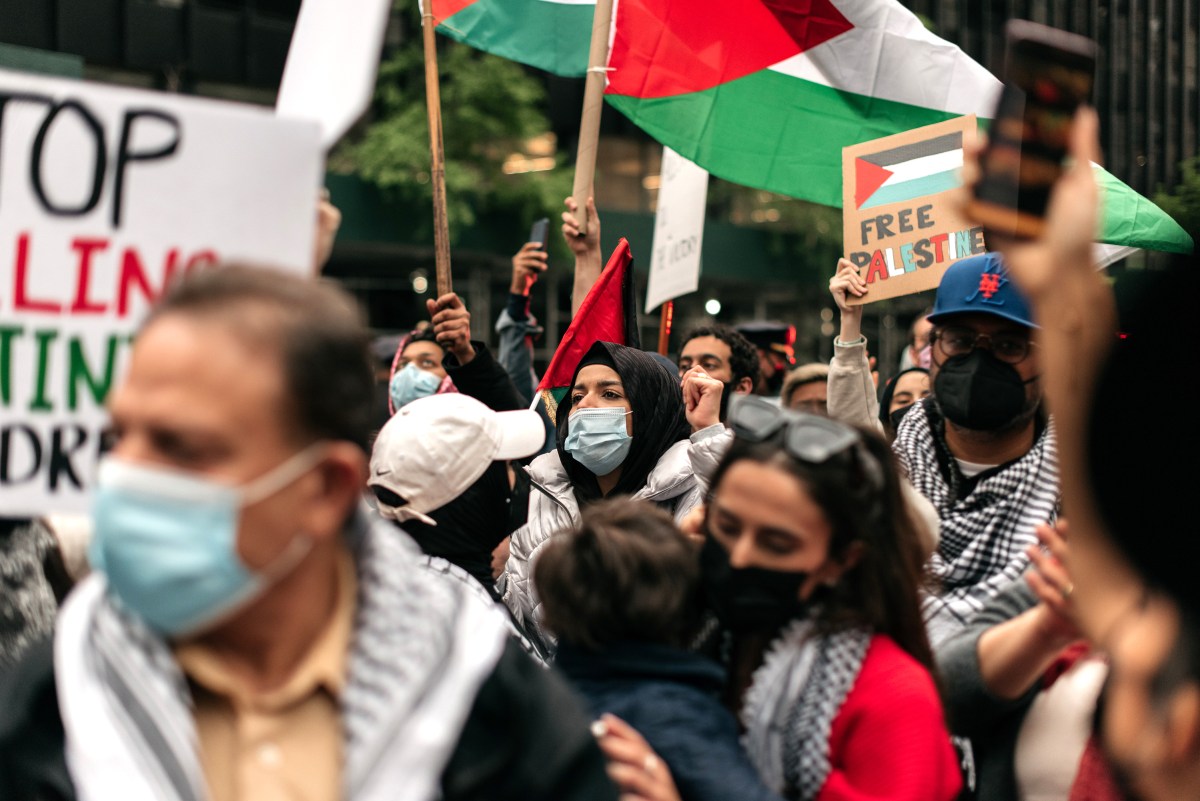
Protesters demanding an end to Israeli violence against Palestine rally in New York on May 11, 2021.
Perhaps something, this time, will be different. With the newfound skepticism of law enforcement and incarceration wrought by the George Floyd movement, many in the “woke” world seem to have found resonance with the scenes of Palestinian civilian protests throughout the territories and Israel, launching marches of their own around the globe. Perhaps, after a year in which the words “decolonization” and “intersectionality” have become memes, in which social media has become a streamlined highway for outrage and mobilization, this “clash” will be recognized at last for what it is: a fight for the Palestinian right to be human.
Such a shift would be a breakthrough: Just as the U.S. will remain haunted until Black lives are fully, truly, and equally valued, there can be no peace in Israel-Palestine until all the lives involved are reckoned with as human. Such a reckoning is understandably terrifying for nations built on the systematic denial of certain humanities, but there is no other way. And if the last year has taught us anything, it is that no odds can outmatch the individual’s need for dignity.
“The myths of self-defense” — Israel’s — “and both sides are becoming more and more penetrable,” Mohammed el-Kurd, whose family is facing forced displacement from their home in Sheikh Jarrah, said in a CNN interview this week. “People are being able to see through these myths and call an occupation for what it is and an aggressor for what it is.”
And perhaps, too, they will begin to see us.

